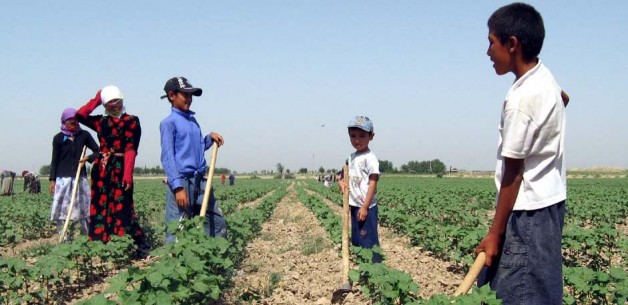Congressional Briefing: Human Rights at the World Bank
On December 19, in conjunction with the Tom Lantos Human Rights Commission of the U.S. House of Representatives, BIC was pleased to co-host a Congressional briefing on human rights and the World Bank with Human Rights Watch and the Center for International Environmental Law. The purpose of the briefing was to discuss human rights in the context of the World Bank safeguards policy review. Currently, the absence of human rights requirements in the safeguard policies means the Bank operates without any way to ensure it avoids contributing to or exacerbating rights violations. The U.S. Congress has repeatedly called for the World Bank to advance the cause of human rights, and the upcoming International Development Association (IDA) replenishment period provides Congress with an opportunity to insist on strong safeguard policies, binding on both the Bank and borrowing countries, that ensure respect for human rights.
The briefing was well attended by Congressional staff, NGO representatives, and interested members of the public. Expert presentations on World Bank projects with serious consequences for human rights were followed by a lively question and answer session. Panelists included Peter Rosenblum, a professor at Columbia University, Matt Fischer-Daly of the Cotton Campaign, and Kendyl Salcito, Executive Director of NomoGaia. The briefing was moderated by Jessica Evans, Senior Advocate of Human Rights Watch.
Peter Rosenblum discussed the missed opportunities to advance human rights through the World Bank’s investment in the Chad-Cameroon oil pipeline, and the likelihood that those mistakes will continue to be repeated under the status quo. A landlocked country with a long history of civil war, political instability, and widespread corruption, Chad is an important example of the World Bank’s failure to exercise its considerable influence to promote human rights in fragile states. From the outset of the project, ExxonMobil explicitly stated that it would not proceed without the World Bank. The largest single investment in Sub Saharan Africa in decades (excluding South Africa), the project created an unprecedented opening for the World Bank to use its considerable leverage to advance human rights in the region—an opportunity that it ignored. Instead of honoring a request by Chadian civil society for a one year moratorium on the project to ensure full participation, the Bank shut them out of the process by bringing unknown Chadian groups to Washington to discredit credible human rights defenders. Critics of the project were jailed, intimidated, and had their travel documents revoked by the Chadian authorities. The World Bank’s efforts to build institutional capacity in the country to manage the oil revenues were quickly outpaced by the construction of the pipeline, which was completed in record time in 2003. After oil revenues started flowing, the Chadian government reneged on its agreement with the Bank to spend 80% of the revenues on social development, instead purchasing arms. When the World Bank protested, Chad paid back the loan and the Bank’s window of opportunity was closed. The Bank has apparently not learned anything from its failures in this case, and appears poised to repeat its mistakes under the leadership of Jim Yong Kim, with a renewed intention to finance such megaprojects but without the tools to ensure the protection of human rights.
Matt Fischer-Daly discussed the experiences of the Cotton Campaign, specifically the Uzbek civil-society members of the coalition, with the World Bank through their efforts to eradicate forced labor in the cotton industry in Uzbekistan. The Cotton Campaign, its members, the ILO and the U.S. State Department, have long documented the state-sponsored system of forced labor in Uzbekistan’s cotton industry. Yet the World Bank failed to acknowledge the well-known system of forced labor—of both children and adults—in the social assessment it undertook prior to engaging in its Rural Enterprise Support Project (RESP II) in Uzbekistan. Consequently, the Bank has also failed to take any measures to mitigate the increase or perpetuation of forced labor potentially resulting from RESP II, and the project is now the subject of an Inspection Panel complaint. The risks posed to rights holders in places like Uzbekistan, where human rights are constantly under threat, are not sufficiently captured in the current World Bank policy on social assessments. Therefore, the Bank should adopt a policy of mandatory risk-based human rights due diligence, including initial assessment, ongoing monitoring and mitigation of potential human rights impacts.
Presentations:
Kendyl Salcito’s Presentation
Matt Fischer-Daly’s presentation





